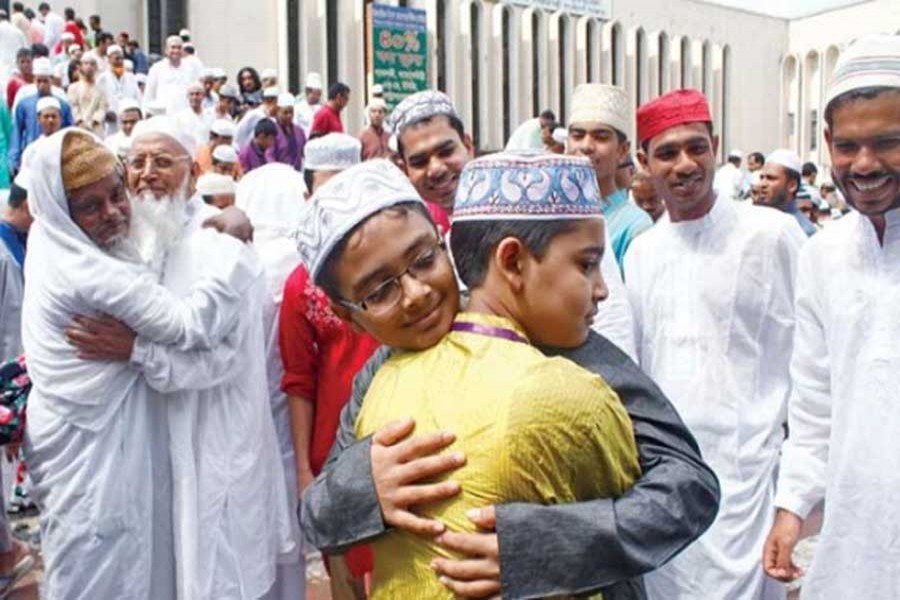Holy Eid-ul-Fitr, the largest religious festival of Muslims, is being celebrated across the country on Saturday amid religious fervour and enthusiasm after a month-long fasting.
The main Eid-ul-Fitr congregation was held at the Jatiya Eidgah in the capital around 8:30 am, with Baitul Mukarram National Mosque Senior Pesh Imam Hafez Maulana Muhammad Mizanur Rahman leading the prayers.
President Abdul Hamid offered his Eid-ul-Fitr prayer along with hundreds of people from different strata of the society on the National Eidgah premises.
After the prayers, they, irrespective of their social status, embraced and greeted each other with Eid Mubarak (have a blessed Eid) by demonstrating a serene show of unity, fraternity and equality.
The Muslims wearing new clothes are visiting the houses of their relatives and friends and exchanging greetings in a festive mood, keeping with its spirit of fellow feeling.
Earlier on Friday, the National Moon Sighting Committee at a meeting decided that the Eid-ul-Fitr will be celebrated on Saturday after reviewing the information of sighting of the Shawwal moon.
President Abdul Hamid and Prime Minister Sheikh Hasina issued separate massages greeting the countrymen as well as the Muslims across the world on the occasion of the holy Eid-ul-Fitr.
Meanwhile, responding to the call of the roots, thousands of people have already left the capital to celebrate the very auspicious occasion with their near and dear ones at their respective village homes.
Eid congregations were also held in eidgahs, mosques and open spaces across the country.
The national flag is being hoisted atop government and non-government office buildings on the day. The main city streets and road islands have been decorated with the national flag and banners inscribed with 'Eid Mubarak' in both Bangla and Arabic.
Television channels and radio stations are telecasting special programmes, UNB reported.
Special diet was served in hospitals, jails, government children homes, Chotomoni Nibash, centres for persons with disabilities, shelter homes, orphanages, vagrant welfare and destitute welfare centres.
Law enforcement agencies, including police and Rapid Action Battalion (RAB), were deployed to ensure security in and around the capital as well as the country.


